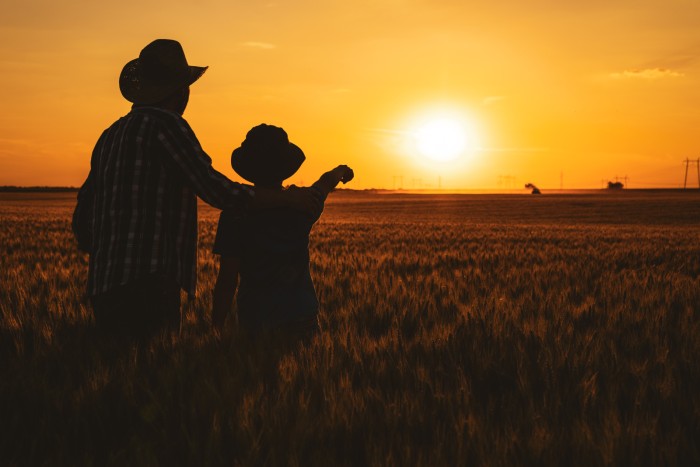3 Ways Solar and Agriculture Work Together
 | Alex Thompson, Communications Associate |

 | Alex Thompson, Communications Associate |
Every landowner deserves the freedom to choose what's best for their land, livelihood, and legacy. Across the Midwest, rural landowners – especially farmers – are finding that solar energy can complement their way of life. By providing extra income, supporting local economies, and powering American homes and businesses, solar energy helps rural America stay strong. Here are three ways solar and agriculture work together.
1. Solar Provides Steady, Diversified Income for Farmers
Commodity prices rise and fall, so having a diverse portfolio protects farmers from risk. Leasing a small portion of farmland for solar panels gives landowners a steady, predictable source of income that helps farms stay profitable during tough times.
In Missouri, for example, the average irrigated cropland lease is $218 per acre, while the average solar land lease is $750 per acre. That extra income can help cover equipment costs, property taxes, or family expenses, making it easier to keep the farm in the family for generations to come.
2. Solar Helps Local Economies Thrive
Beyond the financial benefits for the landowner, solar projects support surrounding communities. When a solar project is built, it infuses cash into the local economy through tax payments. Solar, wind, and energy storage projects in the Midwest provide nearly $500 million through property, state, and local taxes annually. That money can be used to directly benefit the community, whether it's funding schools, critical infrastructure projects, or parks and recreational services. Additionally, solar projects are putting Americans to work. Across the Midwest, there are nearly 50,000 people employed by the solar industry.
3. Solar Delivers Low-Cost, Reliable Energy
When it comes to energy, everyone cares about two things: keeping their lights on and their bills low. Solar energy is the second-cheapest source of energy available, right behind wind power. It's also one of the fastest sources of generation to bring online, which is crucial to meeting the energy demands of tomorrow and avoiding blackouts.
We need low-cost energy, and we need it now. Solar energy helps us get more electrons on the grid, powering rural revenue, statewide innovation, and American energy dominance. Farmers have always been providers, putting food on tables across the country and the world for generations. With solar energy, they can provide homes with affordable, reliable, American-made power as well.
Farmers are the stewards of their land. They must maintain their right to decide what's best for their land and their legacy. Solar energy is a choice that supports family farms, strengthens rural economies, and powers American innovation. It's a choice that secures a more resilient future for the next generation and for generations to come.